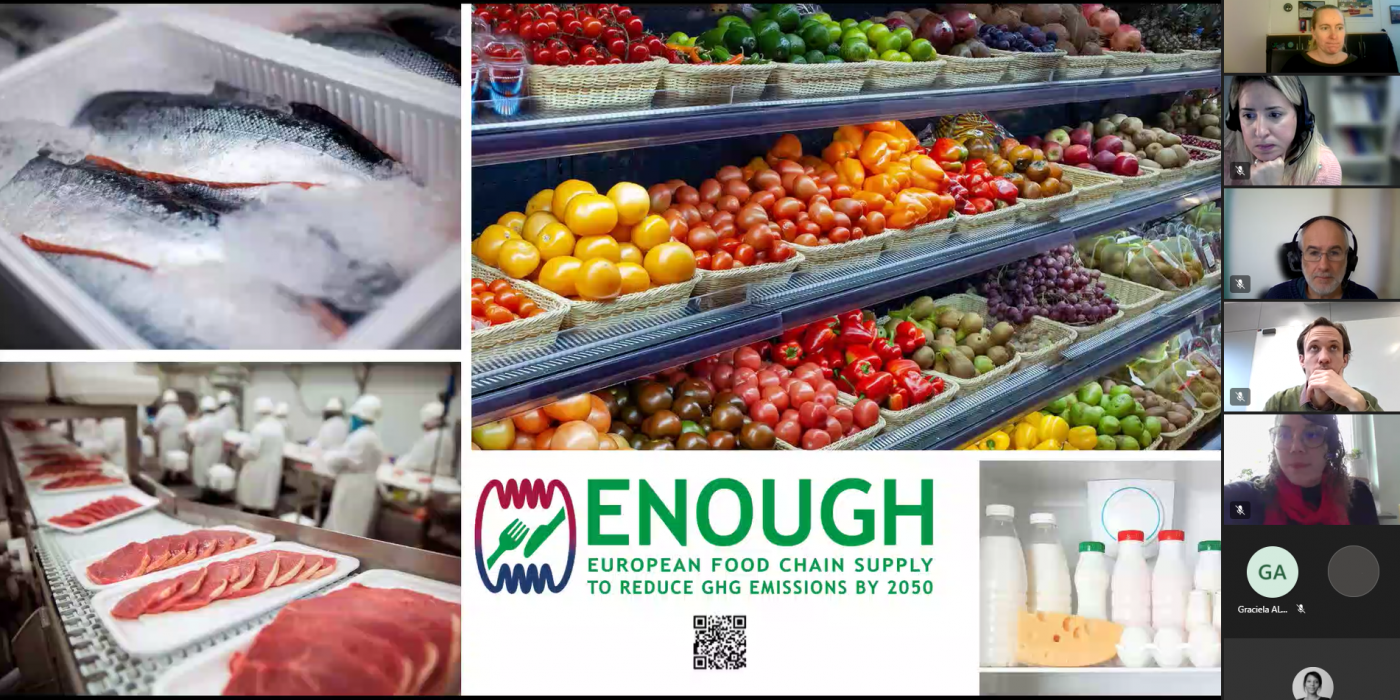The ENOUGH project held a webinar on December 1st to present the highlights and results from the first year of the project.
With a large international audience joining online, the coordinator from SINTEF Ocean presented the background and objects of the ENOUGH project. One objective in the project is to establish a baseline (1990), current (2020) and future (2030 and 2050) database of carbon emissions from the food supply chain (WP2). Members from IIR and UoB explained the methodology and boundaries used to establish this. Bottom-up and top-down methodology was explained, as well as how drivers and sub-drivers have been identified to be used in prediction of future emissions.
The objective of creating technology road maps (WP2) was presented by LSBU. To build the roadmap, multiple technologies have been reviewed to find the most promising ones (GHG emissions, time and cost). Case studies and modelling to assess technical opportunities and impact on different locations is the next stage of creating a roadmap.
Further, the non-technical aspects to reduce emissions (WP3) were presented by UoB. Results from literature reviews on consumer behaviour or social barriers on emissions reduction were presented, in addition to a sustainability analysis of three categories of business models. The ENOUGH project is developing a decision support tool (WP4) with the purpose of simulating and assessing food supply chains on the criteria product quality and safety, energy consumption and CO2 emissions. INRAE, France’s National Research Institute for Agriculture, Food and Environment, performed a demonstration of this tool for the webinar attendees. Additionally, UNIVPM (Università Politecnica delle Marche) presented how the Smart Data System (WP5) will be created in the project and the value of this.
To demonstrate best technologies in key products and cross sectors (WP6), the ENOUGH project has 18 demonstrators. CNR presented an overview of these, while the dairy demonstrator TU Graz presented how they work with the application of a high-temperature heat pumps for waste heat utilization. The project is also working with policies (WP7), and the work with identifying gaps in policy measures to achieve net-zero emissions by 2050 was presented by UGOE. Lastly, the coordinator explained how ENOUGH is linked to “sister projects” in the Green Deal initiative, and possible collaboration opportunities.
Did you miss it? Catch up on the ENOUGH webinar: highlights and results.
You can find the recording of the webinar and the presentations on this website in Publications > Educational Materials.
- Watch the first part and the second part of the webinar
- Download the presentations here









